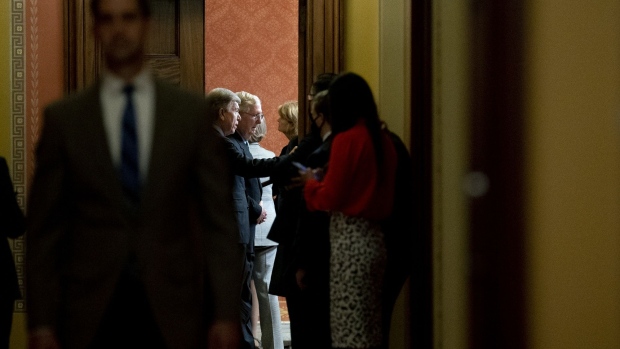
Short-term increase in U.S. debt ceiling passes Senate
BNN Bloomberg
The U.S. Senate approved legislation Thursday that pulls the nation from the brink of a payment default with a short-term debt-ceiling increase, breaking a weeks-long standoff that rattled financial markets.
The U.S. Senate approved legislation Thursday that pulls the nation from the brink of a payment default with a short-term debt-ceiling increase, breaking a weeks-long standoff that rattled financial markets.
The vote was 50-48, with no Republicans in favor of the measure that simply kicks the can toward another precarious debt-limit fight in less than two months. The US$480 billion increase in statutory borrowing would run out around Dec. 3.
The debt limit increase still needs a vote in the House, which has been on break. But Majority Leader Steny Hoyer said Thursday night that representatives would return on Tuesday. The measure is expected to be approved in that chamber. President Joe Biden “looks forward to signing this bill as soon as it passes the House and reaches his desk,” White House Press Secretary Jen Psaki said in a statement.
“Republicans played a risky and partisan game, and I am glad their brinkmanship didn’t work,” Senate Majority Leader Chuck Schumer said after the bill cleared a procedural hurdle.
Schumer and Minority Leader Mitch McConnell struck a deal for the legislation earlier Thursday. News of the accord early sparked a rally in the stock market. The S&P 500 charted a third day of gains as the chances of an economically devastating tightening in fiscal policy abated -- at least for now.
The timeline sets up a collision course where various fiscal and policy battles will play out roughly simultaneously. Funding for government operations also expires on Dec. 3, risking a government shutdown unless lawmakers can complete agency budgets for this fiscal year. Also, Democrats could be trying to push through Biden’s broad economic package around that time.
